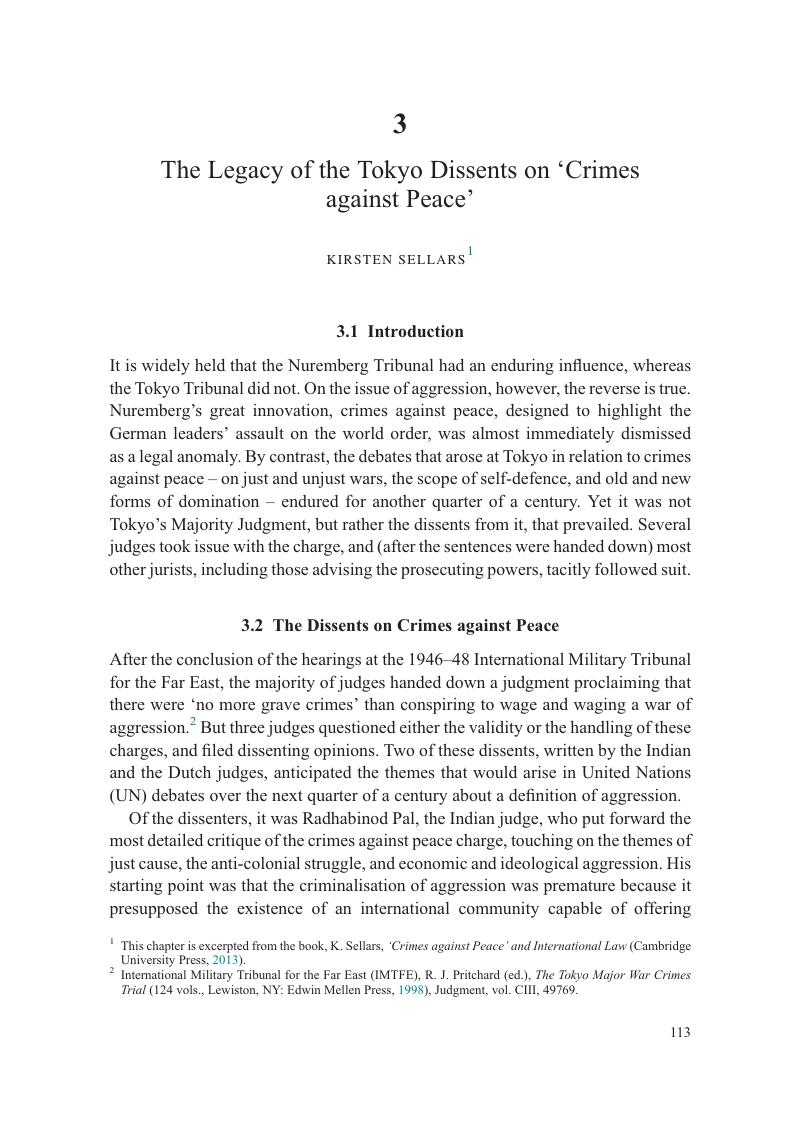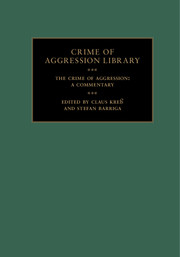Book contents
- The Crime of Aggression: A Commentary
- Crime of Aggression Library
- The Crime of Aggression: A Commentary
- Copyright page
- Contents
- Contributors
- Foreword
- Acknowledgements
- Introduction: The Crime of Aggression and the International Legal Order
- Part I History
- 1 The First World War, Wilhelm II and Article 227: The Origin of the Idea of ‘Aggression’ in International Criminal Law
- 2 The Crimes against Peace Precedent
- 3 The Legacy of the Tokyo Dissents on ‘Crimes against Peace’
- 4 The General Assembly’s Definition of the Act of Aggression
- 5 The Practice of the Security Council Regarding the Concept of Aggression
- 6 The International Court of Justice and the Concept of Aggression
- 7 The International Law Commission’s Work on Aggression
- 8 Negotiations on the Rome Statute, 1995–98
- Part II Theory
- Part III Crime of Aggression under Current International Law
- Part IV Crime of Aggression and National Law
- Part V Crime of Aggression and the Future World Order
- Epilogue. The Long Journey to Kampala: A Personal Memoir
- Index
- References
3 - The Legacy of the Tokyo Dissents on ‘Crimes against Peace’
from Part I - History
Published online by Cambridge University Press: 06 April 2017
- The Crime of Aggression: A Commentary
- Crime of Aggression Library
- The Crime of Aggression: A Commentary
- Copyright page
- Contents
- Contributors
- Foreword
- Acknowledgements
- Introduction: The Crime of Aggression and the International Legal Order
- Part I History
- 1 The First World War, Wilhelm II and Article 227: The Origin of the Idea of ‘Aggression’ in International Criminal Law
- 2 The Crimes against Peace Precedent
- 3 The Legacy of the Tokyo Dissents on ‘Crimes against Peace’
- 4 The General Assembly’s Definition of the Act of Aggression
- 5 The Practice of the Security Council Regarding the Concept of Aggression
- 6 The International Court of Justice and the Concept of Aggression
- 7 The International Law Commission’s Work on Aggression
- 8 Negotiations on the Rome Statute, 1995–98
- Part II Theory
- Part III Crime of Aggression under Current International Law
- Part IV Crime of Aggression and National Law
- Part V Crime of Aggression and the Future World Order
- Epilogue. The Long Journey to Kampala: A Personal Memoir
- Index
- References
Summary

- Type
- Chapter
- Information
- The Crime of AggressionA Commentary, pp. 113 - 141Publisher: Cambridge University PressPrint publication year: 2016



